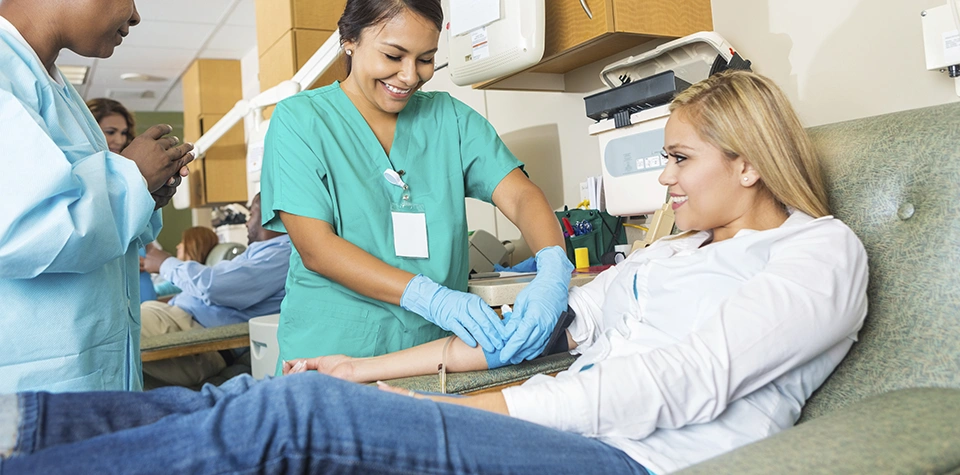As a phlebotomist your role primarily revolves around blood drawing procedures, including blood testing, transfusions, or patient care. But does this scope of practice include administering vaccinations?
In this discussion, we explore the boundaries of a phlebotomist’s role. And if you’ve been searching for ‘phlebotomy classes near me’, we’ll guide you on the appropriate phlebotomy career training to set you up for success.
What Are Phlebotomists Allowed to Do?
Phlebotomists play a crucial part in the healthcare field.
Here are fundamental responsibilities of a phlebotomist:
- Blood Collection and Handling: Phlebotomists draw blood for testing, research, or transfusion. Drawing blood involves venipuncture (collecting blood from veins) or capillary puncture (collecting small amounts of blood). To make sure the right amount of blood is drawn from the patients, it’s necessary to pay attention to every detail during this process.
- Adherence to Protocols: Phlebotomists must adhere to strict identification protocols. Doing so helps to avoid errors in identifying the individual from whom the blood sample is drawn and correctly labeling the collected specimen. Moreover, strict safety standards need to be observed at all times to prevent any infections or other complications.
- Bodily Specimen Processing and Analysis: Apart from handling blood samples, phlebotomists can also process and analyze other types of bodily specimens. These may include samples like urine, stool, or sputum. Analyzing these samples correctly is essential to formulating an accurate diagnosis or researching unique health conditions.
Limitations in a Phlebotomist’s Role
While phlebotomists carry out important roles, you need to understand their boundaries.
Administering vaccinations, for instance, generally falls outside their scope of work. This is because it requires a different set of training. However, the responsibilities of a phlebotomist can somewhat vary depending on the state and the specific medical facility they are working in.
What Can You Learn from a Phlebotomy Program?
Participating in the phlebotomy technician program at Cambridge College of Healthcare & Technology can help you gain valuable skills.
In as little as 11 weeks, you’ll learn all about medical terminology, anatomy, and physiology, with an emphasis on blood collection techniques and safety procedures. The program also ensures students get ample hands-on experience to supplement their phlebotomy career training.
Enroll in the Phlebotomy Technician Program at Cambridge
If you have a desire to help others and are interested in the medical field, consider enrolling in the phlebotomy program at Cambridge College of Healthcare & Technology. Our program provides adequate knowledge in phlebotomy while also introducing you to real-world scenarios.
Visit our website today to learn more about how you can bolster your phlebotomy career.
More On:


